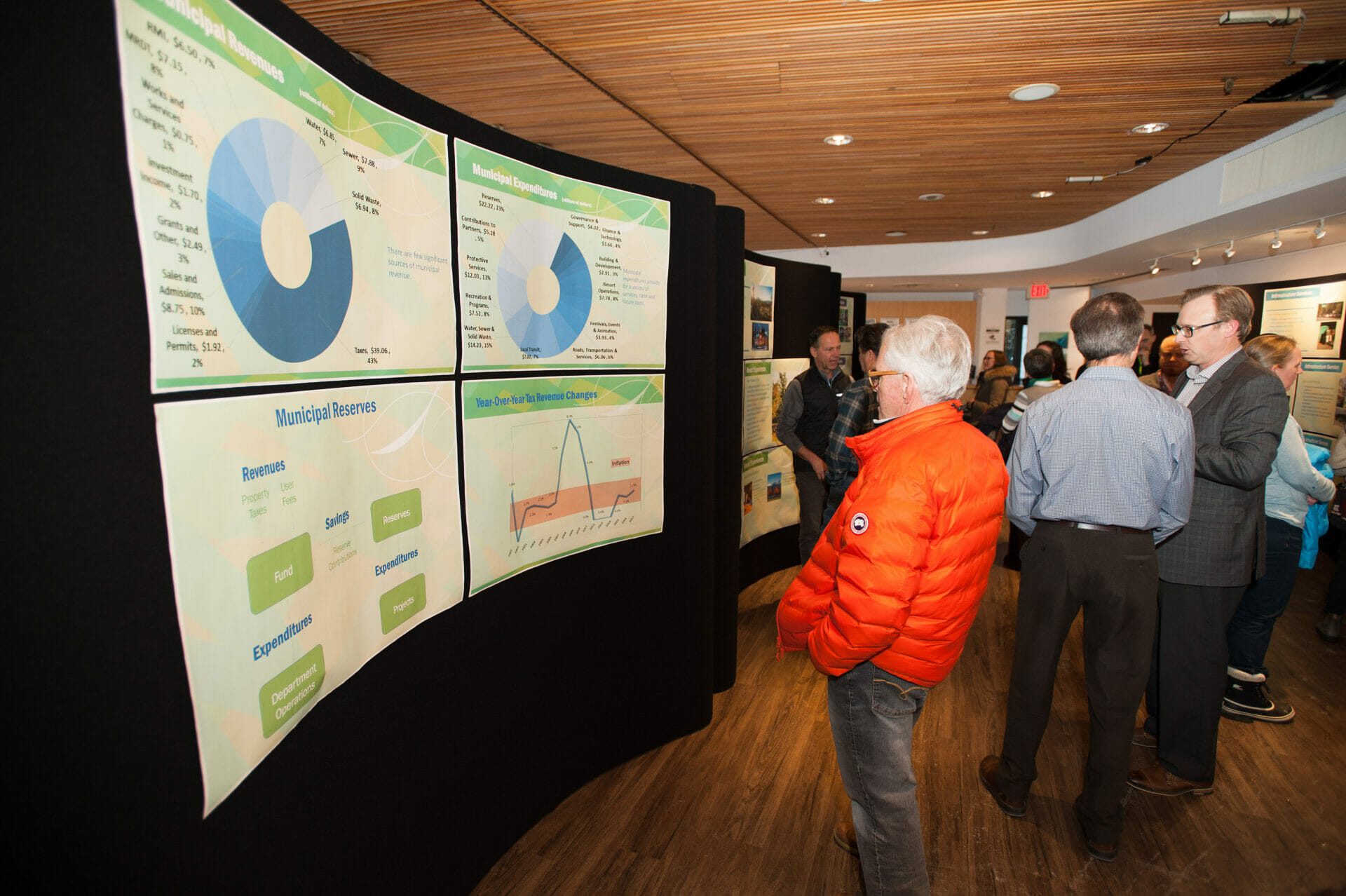Budget Open House to showcase fiscally responsible tax approach to inflationary market
Two new grant-funded docks for Rainbow Park, more electric vehicle chargers and wildfire mitigation work are among the projects identified in Whistler’s 2023 municipal budget, available for viewing at the annual Budget Open House Thursday, Dec.1.
The Resort Municipality of Whistler’s Director of Finance, Carlee Price, will give a half-hour presentation at the evening session between 4:30 and 6:30 p.m. in the Whistler Public Library. Members of the newly-elected Council and municipal staff will be on hand to answer questions and receive feedback from residents all evening, and municipal staff will be available from 11:30 a.m. to 1:30 p.m., same day and place, with opportunity to comment online open through Dec. 16.
“We are engaging with the public in two sessions this year to ensure we’re meeting the needs of our whole community. With this second daytime opportunity to speak with staff, those working in the Village can stop in, learn about our financial decisions on their lunch break and connect. We hope to see people who haven’t been able to make it to the budget process in previous years,” says Mayor Jack Crompton.
The proposed budget largely maintains existing service levels with 8.3 per cent more tax funding than 2022. This means the proposed property tax increase would be half a percent above British Columbia’s 7.8 per cent rate of inflation and less than $100 on the bill of a $1 million residential property, if approved.
Whistler’s 2022 residential municipal mill rate—the amount of tax payable per dollar of assessed property value—was the lowest in British Columbia in 2022, and the municipality has had lower than average tax rate increases for the last decade.
In light of rising inflation and the North America-wide labour shortage, municipal staff are proposing six per cent less project work for 2023 and a review of staff compensation, including benchmarking against comparable municipalities.
“Our operations are pressured by supply chain delays and labour challenges, so we need to attract and retain talent. Our people are the ones who do the legwork to tap broader funding sources, advance critical infrastructure upgrades, meet budgets and deliver municipal services. It’s very important we remain competitive in this labour market,” says Crompton.
Year to year changes in amounts on individual tax bills vary considerably, based on how a home or business owner’s value was assessed in relation to others within its property class; classes are laid out by BC Assessment in the Assessment Act.
The 2023 budget focuses on climate with critical building upgrades for energy efficiency and adaptation work on the dikes, among the $15 million earmarked within various individual projects for climate action.
Municipal budgets pay for roads, sewer, water and other municipal services, such as fire, police and recreation. Every year, the RMOW aims to dedicate a portion of taxes to offset the deterioration of its buildings and infrastructure, and ensure that reserve balances are sufficient to maintain those assets and services in future years.
Property taxes fund 50 per cent of the municipal budget, with another 20 per cent of revenue coming from utility taxes and fees, and eight per cent from grant funding sources, such as the Municipal Regional District Tax (MRDT) and the Resort Municipality Initiative (RMI) Program for provincially-approved tourism initiatives. The remaining revenue is made up of fees, charges and additional grants.
Thursday’s Budget Open House will include free childcare for the evening session. Following the event, the public will have until Dec.16 to provide feedback on and post questions about the proposed budget via Whistler’s online engagement portal. The Budget Guidelines are scheduled to be considered by Council on Dec. 20 and the Five-Year Financial Plan Bylaw on Jan. 10 for first, second and third reading.

